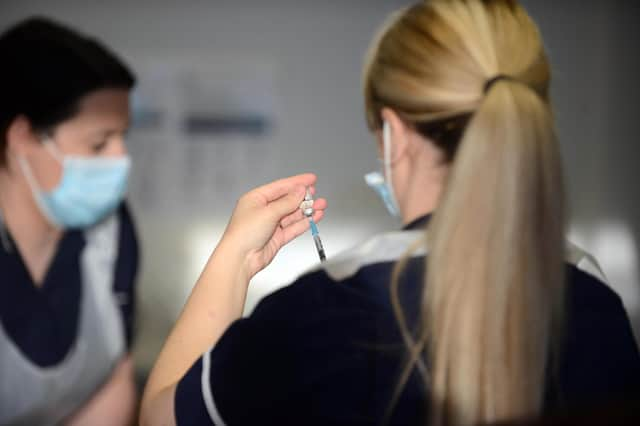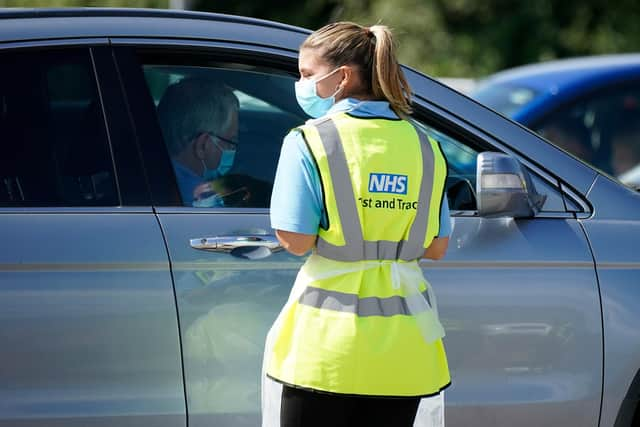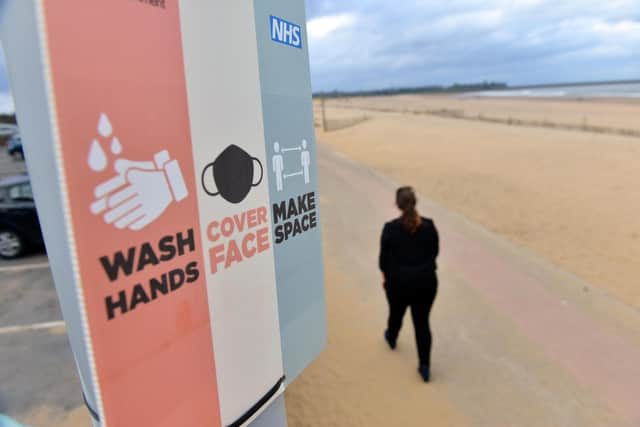Health chief hails huge drop in South Tyneside covid cases - but warns impact on daily life will remain for a 'long, long time'


According to figures revealed to councillors this week, the borough has seen its rate of positive cases plummet since the third national lockdown came into force.
The latest rolling seven-day crude case rate was 42 per 100,000 population.
Advertisement
Hide AdAdvertisement
Hide AdBy comparison, in late December/early January a rate of 836 positive cases per 100,000 population was recorded.


Since its official launch, South Tyneside’s vaccination programme has also progressed at pace with around 74,500 adults having received a first dose as of March 30,2021.
Despite the figures “moving in the right direction,” South Tyneside’s Director of Public Health, Tom Hall, suggested the impact of Covid-19 will remain for some time.
Reflecting on a year since the pandemic hit the UK, he said changes to work practices and daily life could continue as society adapts to a new normal.
Advertisement
Hide AdAdvertisement
Hide Ad“As we move to what everyone deems as the recovery phase, in many respects I consider it as what is the new world going to look like,” he said.


“I don’t think we will ever go back to where we were prior to the pandemic hitting our shores last year, I think we have to acknowledge that we’re all going to be working and living slightly differently going forward.
“Hopefully many of the things that we lost will return, but actually some things we will continue to do.
“That might be a lot more virtual meetings, it might be a lot more working from home, it might be an ongoing vaccination programme on an annual basis.
“They’re the sort of things that we’re going to have to recognise are going to be part of our daily lives going forward.
He added: “Things change as a result of incidents like this and they’re the sorts of things that are probably going to be with us for a long, long time now.”
Mr Hall was speaking at a meeting of South Tyneside Council’s Overview and Scrutiny Coordinating and Call-in Committee, which was held via videolink and broadcast on YouTube.
Advertisement
Hide AdAdvertisement
Hide AdDuring the meeting, the public health chief was asked about the lessons learned during the pandemic and plans for the future.
Councillors heard that health bosses had recently refreshed strategic plans to monitor and reduce the spread of Covid-19.
This ranges from managing individual outbreaks to extra testing and contact tracing where required, even as Covid case numbers continue to drop.
Key priorities going forward also include reducing vaccine inequalities within the borough, rolling out the vaccine to younger age groups, promoting the vaccine as safe and effective and tackling misinformation.
Advertisement
Hide AdAdvertisement
Hide AdMr Hall stressed the response to Covid-19 was a team effort and credited council departments and wider partners for pulling together in true “South Tyneside spirit.”
And the lessons learned over the past year, he added, could help protect the borough against other public health risks in future.
“Prior to the pandemic hitting, dealing with a pandemic was number one on the national risk register and it has been for some time because of the scale of disruption it causes,” Mr Hall explained.
“We have just had to live through one and I think now everyone appreciates that even more than perhaps we did prior to that, because it has been made very real.
Advertisement
Hide AdAdvertisement
Hide Ad“I think we have learned a number of things that I guess in many respects we started to forget in terms of what it takes to protect ourselves from infectious diseases.
“Actually we have adapted to that and I think people will now remember to wash their hands a lot more than perhaps they did 18 months ago.
“That is only a good thing because I think it moves us in the right direction and protects us against other infectious diseases moving forward.”